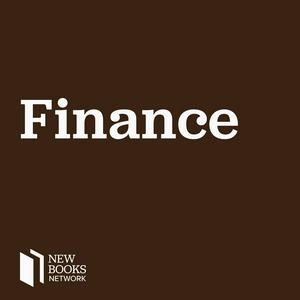Jerome Powell: “We don't think you're a straight shooter"
More than any one institution, the US Federal Reserve drives global capital markets with its decisions and communications. While its interest rates are set by a committee, for almost a century, the Fed’s philosophy and operational approach have been moulded by one person: the Chair of the Board of Governors.
In the first series of The Chair, Tim Gwynn Jones talked to authors of books about the Fed's foundational Chairs – Marriner Eccles, Bill Martin, Arthur Burns, and Paul Volcker. In this second series, he covers the people who chaired the Fed through the post-1990 period of financialisation, globalisation, and – perhaps today – deglobalisation.
This eighth and final episode covers the life and times of the current chair, Jerome ("Jay") Powell - the technocratic lawyer-turned-banker who managed the global economy through two unprecedented disasters: the Covid pandemic and Donald Trump’s protectionist trade policies. As the episodes about Martin, Burns, and Volcker all attest, Powell isn't the first chairman to face political blowback. But he is the first to be publicly denounced as “Mr Too Late” and a “major loser” by a president intent on removing him from office before his term ends in mid-2026.
To discuss Powell, Tim is joined by Nick Timiraos, author of Trillion Dollar Triage: How Jay Powell and the Fed Battled a President and a Pandemic and Prevented Economic Disaster (Little, Brown, 2022).
“If people think you're not going to act in the country's best interest, that's bad for the Fed,” he says. “The next time the Fed decides it needs to do something that actually is ‘exigent and unusual’, people will say: ‘Well, wait a minute, the last time you did this, we thought you were a toady for the Democrats or a toady for the Republicans. We don't think you're a straight shooter. We're not going to let you raise interest rates by 25 basis points. We're not going to give you money to backstop your purchases of corporate credit’. Those are the kind of medium and long term risks from a fight with the White House. I think, for Powell, the worst outcome is that people don't think you have an independent central bank anymore. Your monetary policy won't be credible. Why not just roll that thing into the Treasury Department if that's what you're going to do?”
Since 2017, Nick Timiraos has been the chief economics correspondent at The Wall Street Journal and has developed an unrivalled reputation as the "Fed whisperer".
Learn more about your ad choices. Visit megaphone.fm/adchoices
Support our show by becoming a premium member! https://newbooksnetwork.supportingcast.fm/finance
